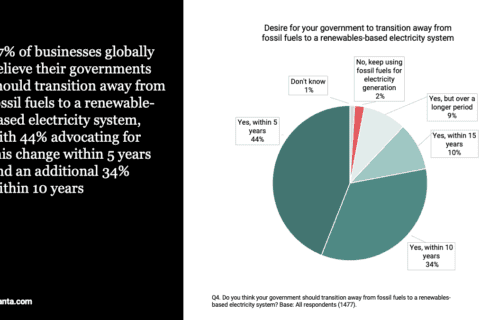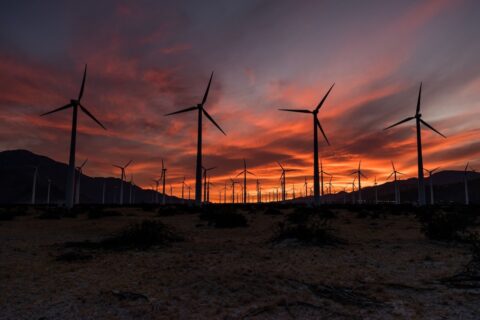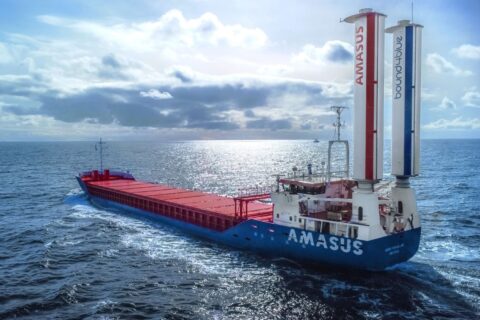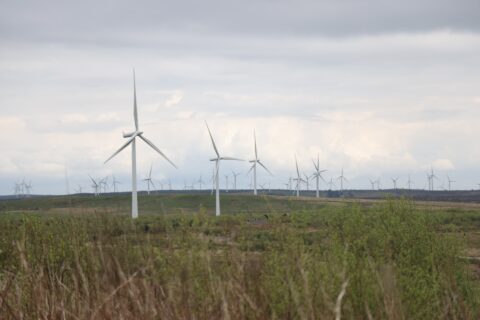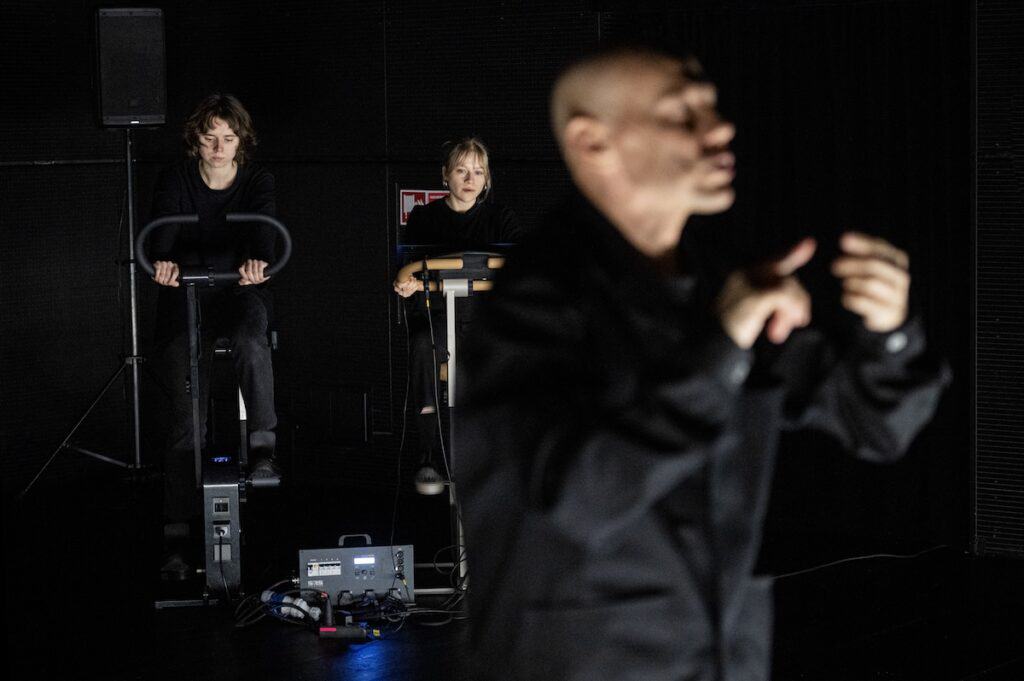
Harnessing pedal-power, a mobile and sustainable, kinetic energy storage device was used to generate electricity for the entire performance of a play that tackles climate change, performed on stage in Lithuania.
Entitled A Play for the Living in a Time of Extinction, the work premiered in the Lithuanian National Drama Theatre (LNDT). It was powered entirely with electricity generated and stored in two unique exercise bikes.
Created by clean mobility and renewable energy specialists Tukas EV, the HR Bank is an exercise bike that can harness kinetic, solar, and wind energy, or tap into surplus electricity.
The energy is converted into electricity that charges a built-in battery. This combination of generation and storage helps enable access to sustainable energy sources of energy for people living in remote locations, as well as urban dwellers seeking to cut down on non-renewable energy consumption.
Off-grid power for eco performance
This innovative drama project was commissioned and developed by the LubDub Theatre Company. The performance was executed by a Lithuanian team working under British director Katie Mitchell.
It is also part of a bigger initiative called STAGES (Sustainable Theatre Alliance for a Green Environmental Shift), which is taking place in 14 European theatres.
The play takes the form of a monologue written by the American dramatist Miranda Rose Hall. The main character narrates the history of Earth, in a storyline that underscores the potential role of humans in causing the sixth mass extinction.
Use of recycled and responsible materials
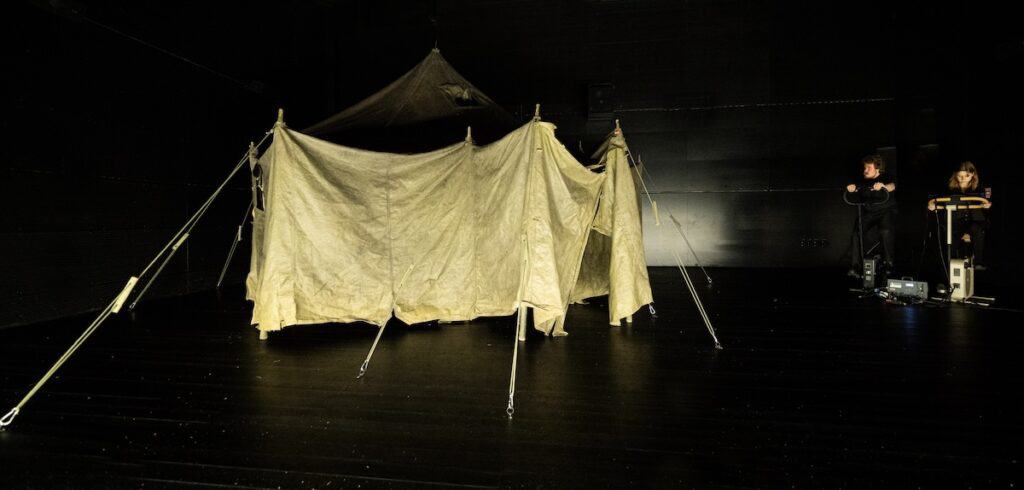
In the LNDT production, the show had to be off the grid, which meant electricity needed to be generated during the actual performance on stage. It was local director Antanas Obcarskas who chose to power the performance with the two exercise bikes from the Lithuanian startup company Tukas EV.
With only 15 minutes of pedalling, one bike can produce enough electricity to charge a smartphone. A total of three hours of pedalling generated enough energy to power the entire 90-minute performance.
During the LNDT show, two actors pedalled two bikes, providing electricity for the whole play, including the lightning. Over the year, there will be several more such performances.
This novel application illustrates the breadth of product potential, says Jonas Navickas, CEO of Tukas EV:
“When we created the bike we never imagined that it would be used on stage in the national Lithuanian theatre. However, this performance showcases the versatility of HR Bank. It can power your laptop, smartphone or even provide energy for the whole house, regardless of where you live.”
HR Bank not only has 2kWh integrated battery storage but is also made from eco-friendly materials, making it a strong match for the sustainable theatre initiative STAGES, adds Navickas:
“Sustainability in production is a continuous responsibility rather than a passing trend. We understand that the materials we choose today have lasting implications for the future. We made HR Bank from recycled aluminium and FSC-certified birch plywood, thus reducing the need for new resources and cutting down energy use in production.”
Mobility custom-made for adaptability
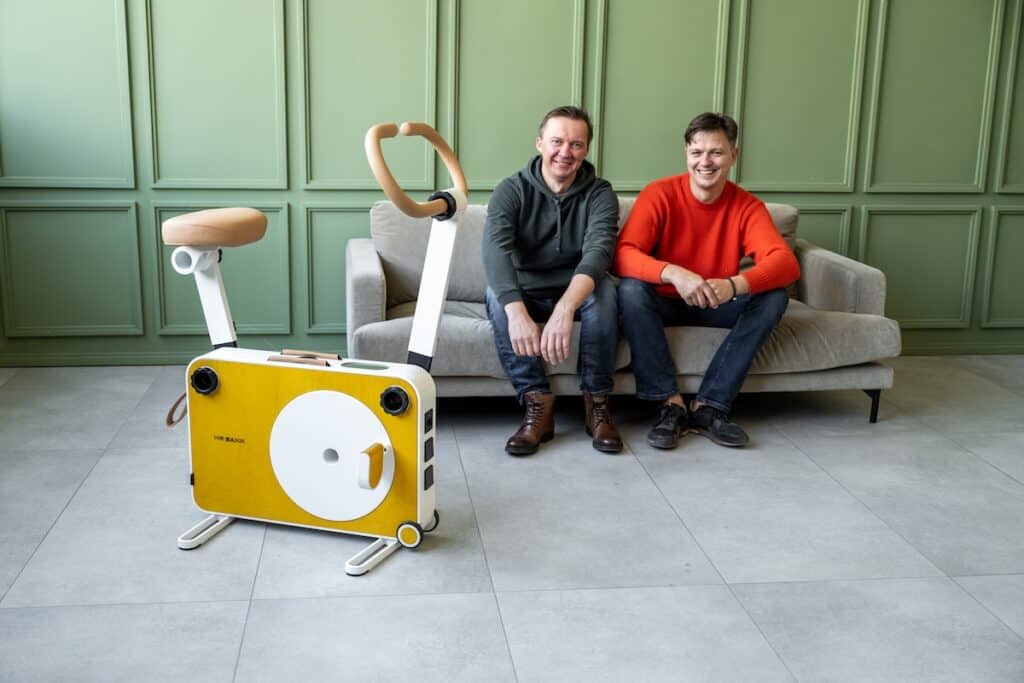
Mindful of social sustainability concerns as well and environmental, the Tukas EV team also wanted to make HR Bank comfortable for all kinds of users. Therefore, the device offers complete customisation and is available in a variety of colours and materials. It is easily transportable, too, thanks to trolley-style wheels.
Additionally, it comes with an optional desk attachment, ideal for both home and office use. This focus on adaptability encourages long-term usage, resonating with commitments to conscious consumerism.
Based in Lithuania, Tukas EV develops clean mobility and energy solutions. In 2010, founders of the company were also responsible for the creation of Jonelis, the first Lithuanian electrical car.
Further Reading:
- More about Tukas EV; and the HR Bank exercise bike;
- More about the production by the Lithuanian National Drama Theatre (LNDT);
- More about the LubDub Theatre Company; and playwright Miranda Rose Hall;
- More on STAGES (Sustainable Theatre Alliance for a Green Environmental Shift);
- Also on SustMeme, Beer brewed by power of the sun in Lithuania;
- Also on SustMeme, Long Duration Energy Storage: ‘Future of Energy’ in The Times;
- Also on SustMeme, Lithuania to move beyond biomass in record energy transition;
- Also on SustMeme, World first for solar in Lithuania;
- Also on SustMeme, Breakthrough in nanotechnology could power revolution in wearables.
Check out the full archive of stories on the SustMeme Climate & Energy Channel, now available to Sponsor.



